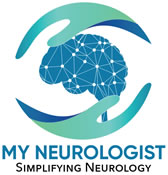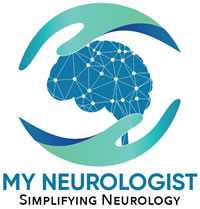A professor of neurology once said that any person may have about 5 neurological symptoms every day, but that does not necessarily mean a neurological disease. Even a brief overview of the nervous system is enough to appreciate its complexities and intricate nature. In fact, it is surprising that it works so well in spite of innumerable ways it may malfunction. If it does, one may have to consult a neurologist.
It may be helpful to understand how a neurologist thinks to work out a problem. In some ways, a neurologist works like a crime detective, always starting from the basics and working through details, picking up minor clues on the way, to reach a plausible conclusion. Technology has heavily influenced how neurology is practiced today, but the basic approach of finding the location and nature of a patient’s problem is still the same. Also, even with all the technology, large number of neurological problems is diagnosed by asking the right questions, and by examining the patient. Following are some suggestions that may be useful to get the best of a neurological consultation:
A: Bring appropriate documents: A consultation may not start without proper documentation. A referral from your doctor is required to make an appointment in our office. Please bring a proper photo ID, and updated insurance information. If copay is included in your plan, it is due before the consultation. Also, either bring the list of medicines you take, or the prescription bottles.
B: Be clear about the reason for consultation: In most cases, there is a symptom bothering a patient, like pain or headache, weakness, numbness, forgetfulness, etc. It is important to be clear about it. It is not uncommon for a patient with low back pain to state that the reason for the consultation is, “I have a disc bulge,” or a “disc herniation.” Findings on a test may also need attention but the reason that started the investigation process is the starting point. Also, a neurology consultation is not an open-ended visit to discuss everything neurological. It has to be targeted to a specific problem.
C: Share your history: A lot of neurological disorders are diagnosed based just upon history. For example, for a complaint of pain, following details can help to figure it out:
- When did it start?
- Where exactly?
- How bad, on scale of 1-10, or mild, moderate to severe, and anything in between?
- Is it continuous, or it comes and goes? If not continuous, how often?
- How long it has been happening?
- Is there any warning before it starts?
- Are there any trigger(s)?
- What makes it worse?
- What makes it better?
- Are there other symptoms that come with it?
- How long it usually last?
- Have you tried to take any medicine(s) for it?
D: Bring any prior testing: If any test has been done in a different area or in a different hospital where the neurologist may not have access to, please bring the test reports. For imaging tests like a CT or MRI scan, always bring the CD or the pictures; reports are not enough. You may be told that this information is going to be there but it is seldom true. Even with electronic health records, so far, only reports are transmitted, not pictures. A neurologist is always interested to review the films. And remember, MRI and CT scan CDs are obtained from where the test is done, not from the doctor who ordered the test.
E: Dress properly: Neurological examination involves checking reflexes in hands and feet. It is better to wear loose clothing and shoes that you may easily take off. Sometimes, neurologist is also interested to inspect your skin, as the skin in fact is a part of nervous system.
F: Neurologist office is not a clearinghouse for testing: Many patients come and state that they are here to get a brain scan. Please discuss your symptoms or problem, a scan may be requested if required. Also, be aware that most imaging, and many other tests and treatments, require prior-authorization from insurance. Approval is only granted if a test is deemed medically necessary.
G: Avoid conflict of interest issues: Be aware of conflict of interest issues that may create an uncomfortable situation, and may directly impact your professional relationship with the doctor. This is quite common in situations where medico-legal issues are involved, e.g., auto-accidents, workman compensation cases, or other matters involving legal proceedings. It is best to keep the treating physician separate from the one providing opinion about legal matters. Our office routinely asks if the consultation is about such matters.
H: Be knowledgeable about your condition: It is always better for the patient to be properly informed and knowledgeable about his/her condition. It helps them manage their condition, and also to avoid any misunderstandings. While learning about medical issues in general and the neurological issues in particular, be aware that the Internet is an open medium. A lot of medical looking information on the net is less than satisfactory, at times misleading, and sometimes incorrect. Feel free to discuss with the neurologist something you may have read, or any question you may have about your condition or its treatment. Medical issues are complicated and may require a lot of time to fully discuss every aspect. This site is an effort to help patients get some basic information about their neurological problems.
H: Follow through: Many neurological conditions require long-term observation before making a diagnosis. Many other conditions require an in-person though brief interaction to make decisions about treatment. For example, observing a Parkinson disease patient for a minute or so is enough to make any changes in medicines, which is not possible over the phone, and not sufficient with a video.
I: Be patient: My office does not over-book patients. As much as possible, I try to see them at the time of their consultation. But neurologist like I also cover emergencies in the hospital. Many times I am asked to provide an opinion, over the phone or in person, while I am busy with my office work. This may delay things a bit.
Please be considerate and call the office in advance if you are unable to make an appointment. There are always more patients to be seen, and an empty slot does not help anyone. Please be gentle with the office staff. They are there to help you in all possible ways, but sometimes things are not in their control.
Finally, I have to say that practice of medicine is a scientific art. Every patient brings a new challenge. There are times when these challenges are difficult to overcome, which helps to improve this art. No single approach works for everyone. My office and I try to make patient’s visit as pleasant, timely, and productive as possible. I wish you best of physical, emotional, and spiritual health. Happy, healthy living!


Leave a Reply
Your email is safe with us.
You must be logged in to post a comment.